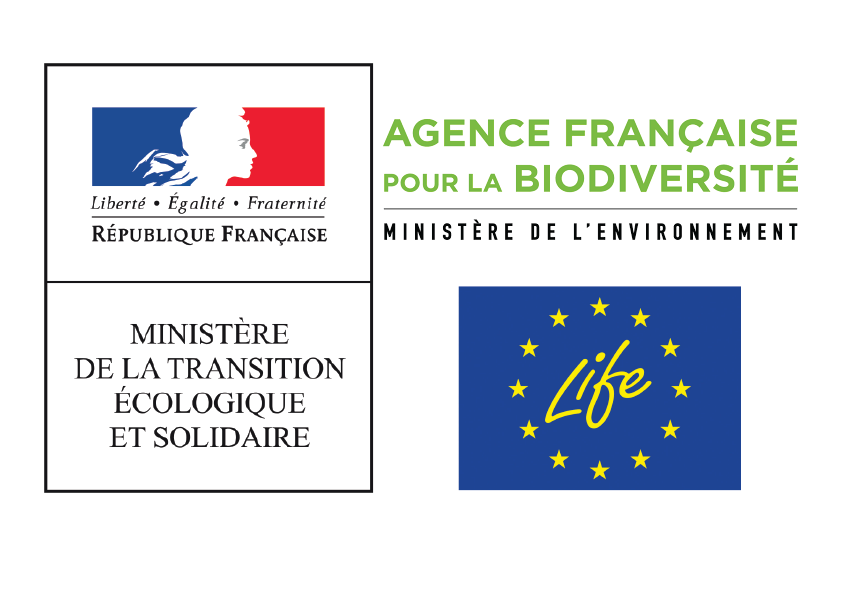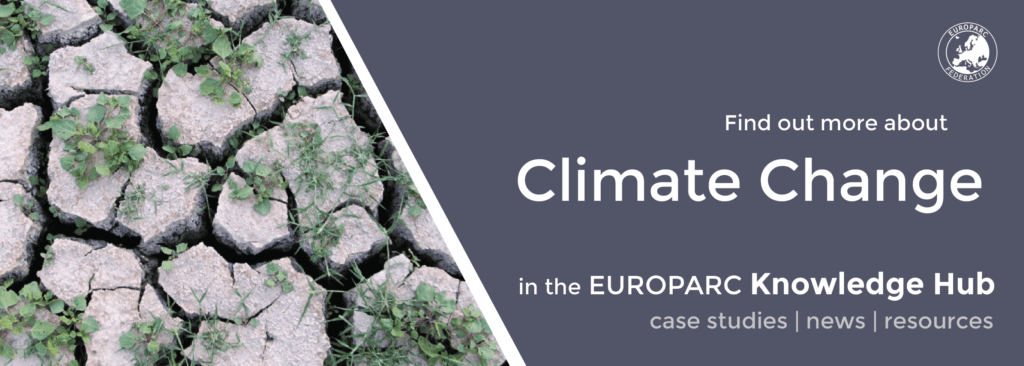The management of Protected Areas must adapt to climate change! – The NaturAdapt Project
pixabay
The management of natural areas must now be adapted to the challenges of climate change in Europe. Réserves Naturelles de France, EUROPARC and eight other partners have come together in the LIFE Climate project to transform this challenge into an opportunity: an opportunity to innovate and trigger a transition towards the adaptive management of protected areas, based on a dynamic collective learning process.
Climate change is already impacting our natural heritage…
Everywhere in Europe, we are seeing the effects of climate change to varying degrees: species found at higher altitudes and latitudes, forest dieback following periods of drought, coastal erosion due to rising sea levels, etc. Whether direct (e.g. early onset of certain phenological stages owing to warming), or indirect through change in human activities (e.g. increased pressure on water resources owing to the greater use of snow canons in mid-mountain areas), these effects are often speeding up the loss of biodiversity at an alarming rate.
… Climate change is still not sufficiently taken into account in protected areas
Despite the existence and acknowledgement of these signs, several recent investigations in France (RNF, FCEN 2015; IUCN 2015) and in Europe (Bonn et al., 2014) show that the management of protected areas currently only incorporates climate change and its social, economic, environmental and health consequences to a very limited extent. Only 15% to 18% of those surveyed are sensitive to this issue.
There are numerous reasons for this:
- For managers, it is not an immediate priority compared with other pressures they are faced with (e.g. change in land use, invasive alien species, etc.);
- Managers feel ill-equipped to deal with it (lack of knowledge and resources);
- Existing methods and feedback are not always accessible (language barriers, heavy investment in time required to adopt them, etc.);
Adapting is a necessity but also an opportunity
We must, therefore, identify the vulnerability of protected areas to climate change and its impacts, and consequently adapt methods for their management, planning and governance. Some experiments have already been conducted in this respect in Mexico and in the US.
Réserves Naturelles de France, EUORPARC and eight other partners have decided to take up the challenge by taking joint action, leading to the creation of the NaturAdapt project: “Adapting the management of nature to the challenges of climate change in Europe: the foundations of a dynamic collective learning process”. Starting with managers’ existing resources and needs, a prototype adaptive management method will be tested by six French nature reserves as pilot areas. A second phase will see the experiment extended to 15 sites.
This approach is considered an opportunity to innovate, develop a participatory approach and position protected areas at the heart of the ecological transition and adaptation of regions to climate change.
In practical terms, what is NaturAdapt?
This is an ambitious project: we want to trigger a paradigm shift to move from planned management to adaptive management. After 10 years, we want to have committed 80% of nature reserve managers to adopting an adaptive approach to management, planning and governance.
To do this, we want:
- To make knowledge and know-how on adapting the management of natural areas accessible;
- To develop methods and services tested by experiments to help managers produce a vulnerability diagnosis and put in place an adaptation plan;
- To create and develop a community of experts and practitioners working on this issue;
- To create innovative mechanisms to disseminate and transfer the results of the project in other contexts, in France and in Europe;
- To raise awareness of the public in the regions of protected areas about the direct and indirect effects of climate change.
And at the European level?
The tools and methods developed by the project will initially be tested in France. At the same time, European protected areas will be integrated in all stages of the project through a series of actions undertaken by EUROPARC:
- a survey of the current initiatives and needs of managers of natural areas in Europe;
- the creation of a “climate change” commission within EUROPARC;
- the provision of a tool box and webinars on the issue;
- the drawing up of a White Paper for European and national policy makers.
The NaturAdapt project in figures:
- 5 years (2018-2023)
- €4.2 M, of which €2.5M from the European Commission via the LIFE Climate programme, €500,000 from the French Ministry for Ecological and Inclusive Transition, and €500,000 from the French Agency for Biodiversity.
- 10 partners

Are you interested in this topic?
Let us know if you have any experience or questions on the adaptive management of protected areas. We’d be delighted to talk about it!
For more about the project, please visit: www.europarc.org/naturadapt
You found this topic interesting? To find more articles like this one, download the new edition of the EUROPARC Journal Protected Areas In-Sight with a special focus on youth involvement Parks – available in english, german and french!
